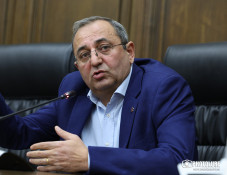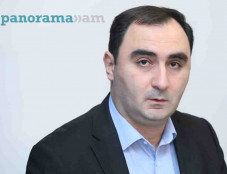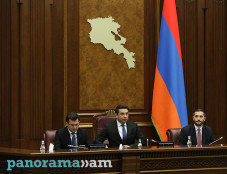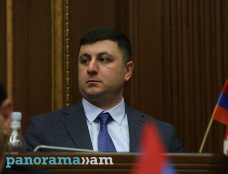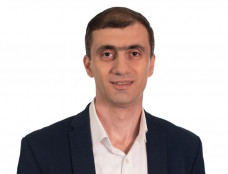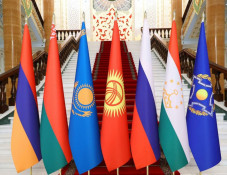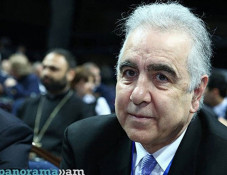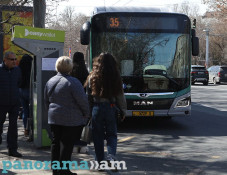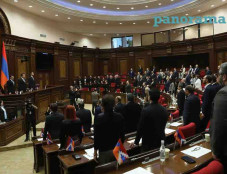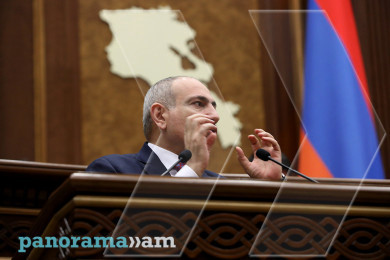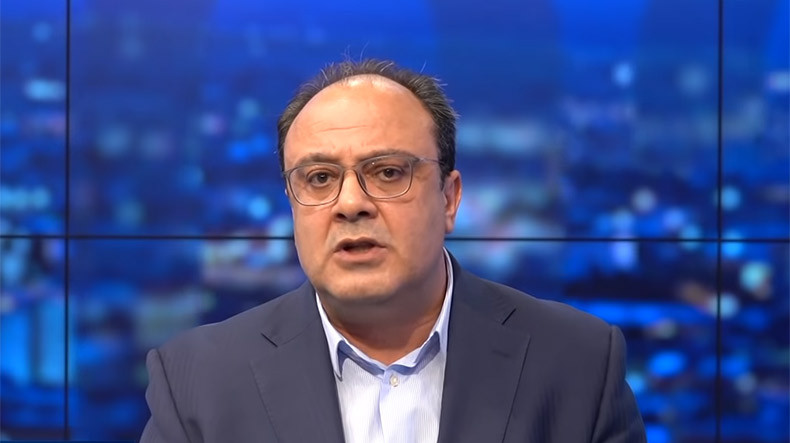
Failure to recognize Artsakh would not have given Aliyev hope on ‘negotiable regions’, Armenian analyst says
The regions of Lachin and Kelbajar, which Armenia handed over to Azerbaijan in the wake of the 44-day war, were expected to remain under Armenian control in case of the official Baku’s failure to recognize the independence of Artsakh (Nagorno-Karabakh), political analyst Karen Bekaryan said on ArmNews TV Channel on Monday, commenting on the Azerbaijani leader’s recent remark, Tert.am reported.
“[Ilham] Aliyev is omitting an important point in his mind here. Under the updated version of the Madrid Principles – which [Armenian Prime Minister Nikol] Pashinyan received as heritage – the regions of Lachin and Kelbarjar were so directly and closely dependant on the status of Karabakh and its recognition that Aliyev realized that in case of a failure to recognize the indpendence of Nagorno-Karbakh, he could not possibly pin any hope on those regions’,” he said, commenting on Pashinyan’s earlier promise to start the negotiations from a scratch (to which Aliyev responded very interestingly).
Bekaryan also commented upon recently held negotiatins between the president of Artsakh and an official representative of Azerbaijan, considering the event very problematic “in terms of both the agenda and the format”.
“The president of Artsakh meets with an official representative of Azerbaijan without being any diplomat accompanying him. Could this suggest that it has nothing to do with the external dialogues of Artsakh. The meeting was attended by the head of the Armenian National Security Service (NSS); was there no NSS representative from Artsakh? We know nothing as to the position held by the official representative of Azerbaijan, i.e. – who he is within the hierarchy of the Azerbaijani state,” he said, warning of the “bunch of challenges” stemming from every question.
Bekaryan also called attention to the official wording of the meeting venue. “It is not in Nagorno-Karabakh, the Nagorno-Karabakh Republic or Sepanakert. No specific placename is mentioned; just a Russian-controlled territory,” he noted.
Addressing the substantial aspect of the talks, Bekaryan pointed out to attempts to bring back to the agenda the issue of the persons who went missing during the 1990s war.
“Are we through - while the trail is still hot - with the problems that still persist in the wake of the recent war? Have were returned our prisoners of war and detained persons? Do we have the complete picture of those who went missing? So are now we daring– apart from the infrastructures and transport routes - to address the [19]90 in the face of all this?”
Bekaryan did not rule out the possibility of “behind-the-scences negotiations” going on at the moment. “Seven body remains dating from the [19]90 war were returned to the Azerbaijanis in the viccinity of Shushi just on the meeting day. Hence, there are negotiations going on around this,” he added.
As another concern, Bekaryan pointed out to the Azerbaijani media reports describing the meeting as an event “held as part of investigative operations”.
“What precedent are we creating with this new, ‘personal’ provision proposed by Pashinyan? Are we also undermining the subjectivity issue, with Artsakh now being devastated and almost bled to death?” he asked.
Newsfeed
Videos





